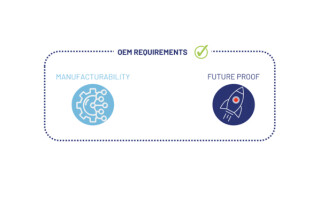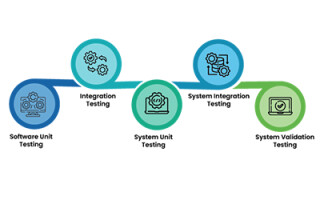Metrics Platform Provides Infinite Simulation Capacity; User Regression Reduced from Seven Hours to One Hour
February 14, 2019
Press Release

Delivers Best Regression Performance, Superior Value over Traditional Systems
New capabilities to the flexible cloud-based Metrics Platform from Metrics Technologies enable users to be more productive and highlight its ability to deliver the best value faster.
Designed to be massively scalable and cost-effective, the Metrics Platform leverages Google Cloud for on-demand and infinite SystemVerilog simulation capacity, big data management and integrated global workflows. One recent regression suite was completed in one hour, not the typical seven hours, highlighting performance gains over traditional systems realized through the platform’s access to unlimited simulation resources.
The Metrics Platform will be demonstrated during DVCon 2019 (Booth #1102) Monday, February 25, through Wednesday, February 27, at the DoubleTree Hotel in San Jose, Calif.
“Metrics is changing the ASIC and complex FPGA design verification business model with superior performance, competitive pricing and on-demand resource availability,” says Doug Letcher, Metrics’ president and CEO. “The power of scale and the economics of our approach is unmatched by any other vendor in our industry.”
Enhanced Capabilities with Immediate Cloud Availability
Advancements to the Metrics Platform include a new dashboard that highlights critical project information using vital statistics about recent regression runs and graphs to help visualize a project's performance trends. Users can analyze simulation data through a web-based verification manager with coverage reporting and regression debug tools.
The Metrics Platform uses the Git Workflow approach for easier and secure global collaborative workflows. Tighter integration with GitLab, a revision-control repository, makes it easier to view existing files and create new Metrics projects.
Expanded regression analysis automatically applies a ranking to all tests in a regression based on their contribution to coverage. This helps users eliminate redundant simulations so they can focus on the stimulus that has the greatest impact.
The Metrics Difference
Using an elastic database and Google cloud storage, the Metrics Platform manages big simulation data across regression environments. It offers access to on-demand simulation to meet peak usage and, unlike the traditional software license model, matches demand to job resources through a software-as-a-service (SaaS) business model, facilitating delivery and support.
Users check in their SystemVerilog/universal verification methodology (UVM) code into the Metrics Platform, where the change history and continuous integration flow is stored, and begin running parallel unlimited simulations.
About Metrics
Metrics, headquartered in Ottawa, Ontario, Canada, is the first true cloud-based platform for ASIC and complex FPGA Design Verification. The Metrics Platform provides an infinitely scalable design verification workflow, which reduces infrastructure waste and enables better engineering efficiency.
Connect with Metrics at:
Website: www.metrics.ca
LinkedIn: https://www.linkedin.com/company/metrics-techno[...]
Twitter: @metricsdotca
Metrics acknowledges trademarks or registered trademarks of other organizations for their respective products and services.




